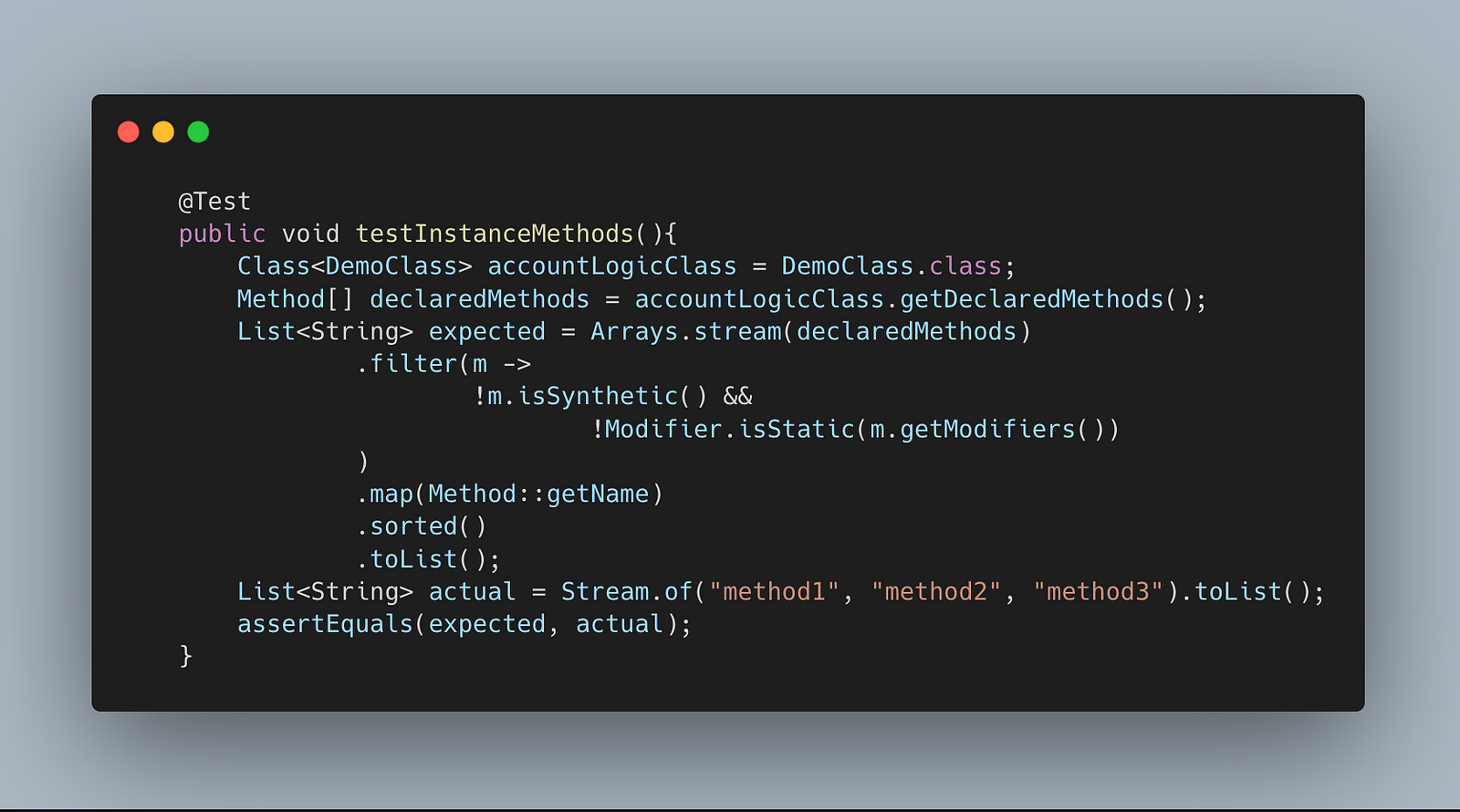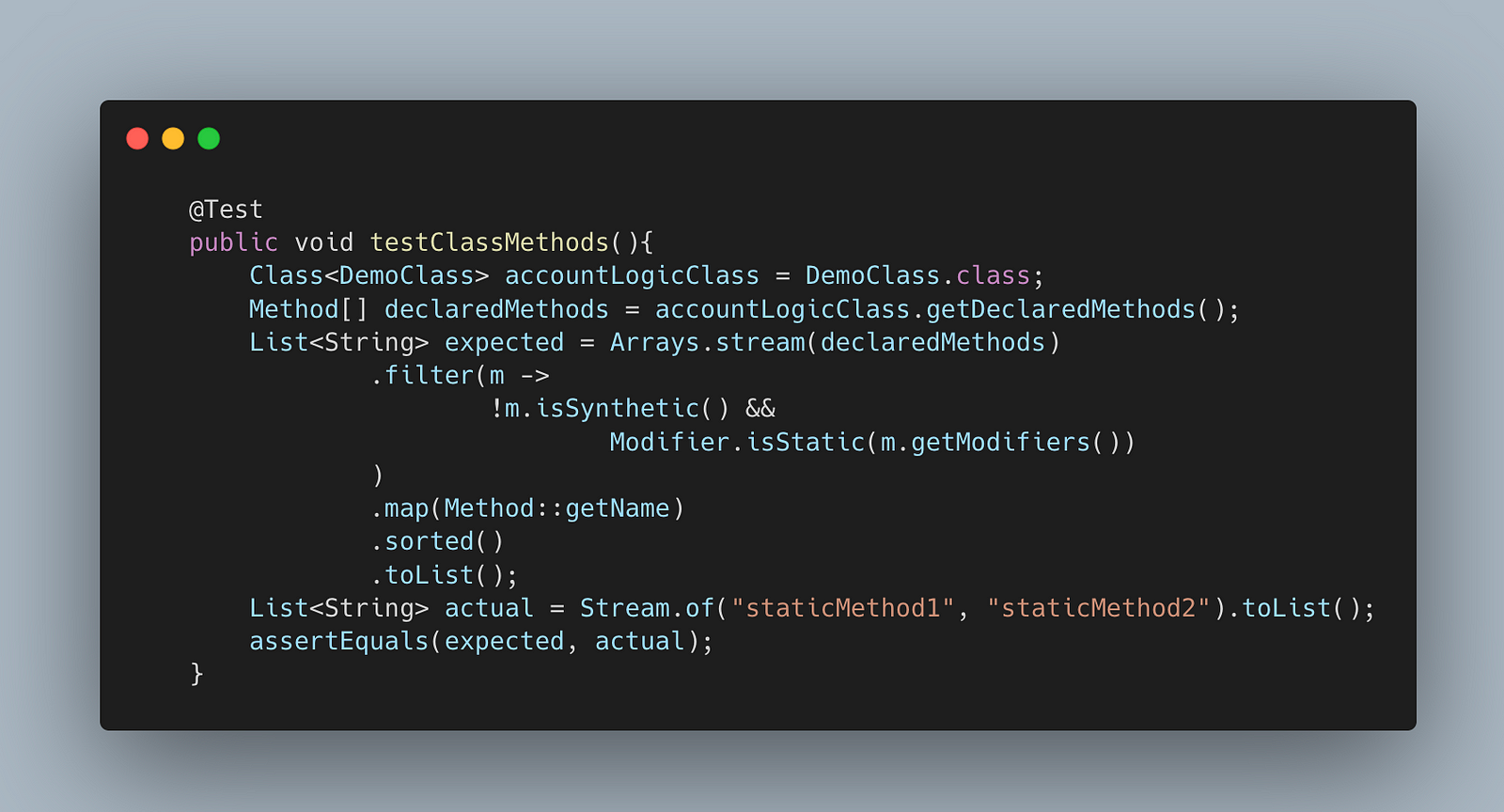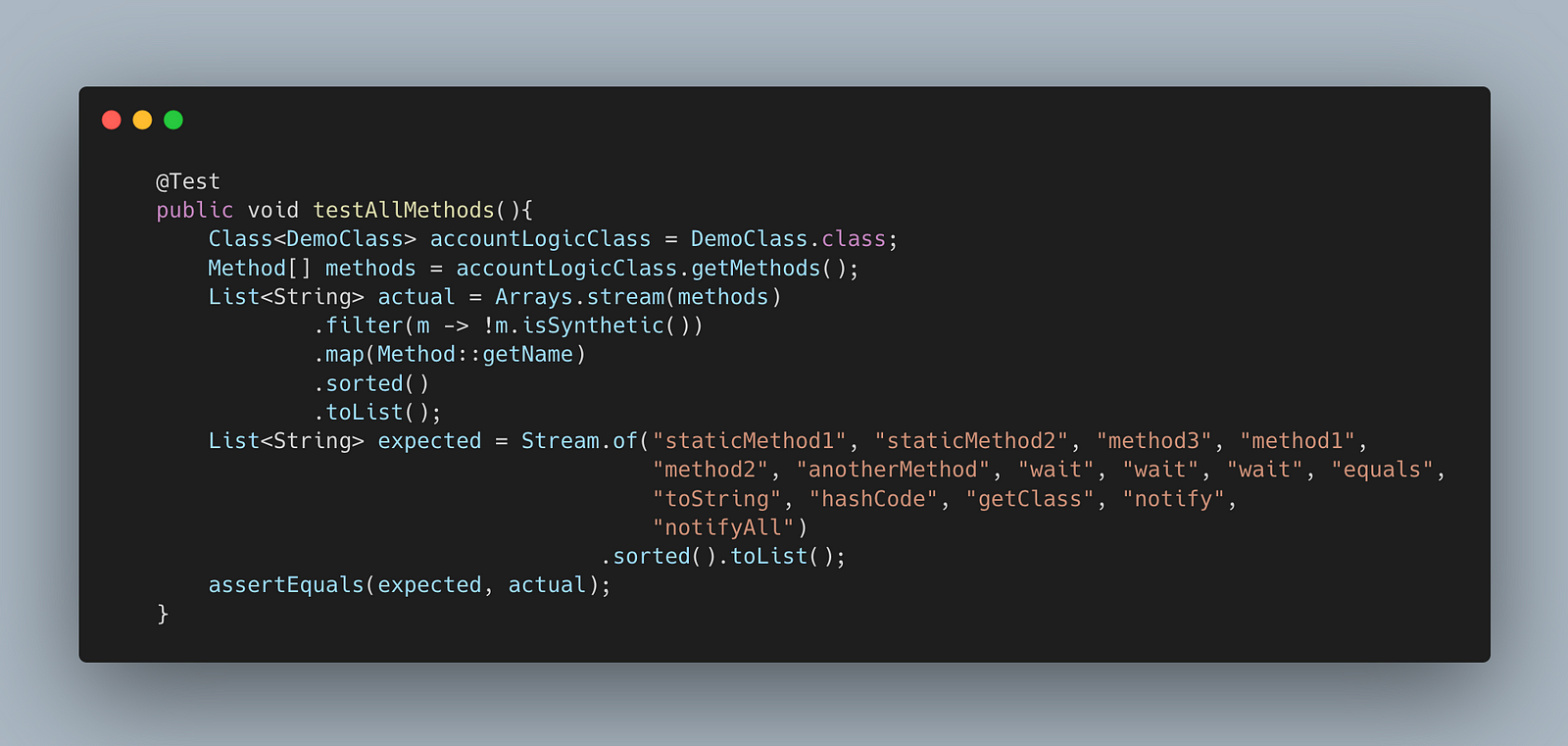Using Reflection to get instance and class methods in Java
Introduction
- Getting the instance or class methods can be helpful in several use cases, for example documenting API, finding all the methods with a particular annotation for metadata processing, and dynamically invoking methods based on input args.
- Java reflection provides the feature to read, and modify the class behavior at runtime, and it’s very useful in getting all the methods of a class.
Getting Instance Methods
- Let’s first create a demo class that has a couple of instance methods.
class DemoClass {
public void method1(){};
public void method2(){};
public void method3(){};
}
- We are using reflection to get all the declared methods inside the class. getDeclaredMethods() function precisely returns that.
- We are also filtering any synthetic methods that may be generated by the source code generator and we are filtering static methods out of it.

Getting Class Methods
- Let’s add some class methods to our demo class (i.e. static methods in java).
class DemoClass {
public void method1(){};
public void method2(){};
public void method3(){};
public static void staticMethod1(){};
public static void staticMethod2(){};
}
- We can use the same getDeclaredMethods() method to get all the methods defined in the demo class.
- Now we can filter all the non-synthetic methods with modifiers as static.

Getting Inherited Methods
- Let’s add the parent class to the demo class.
class AnotherDemoClass {
public void anotherMethod(){};
}
class DemoClass extends AnotherDemoClass {
public void method1(){};
public void method2(){};
public void method3(){};
public static void staticMethod1(){};
public static void staticMethod2(){};
}
- We can get inherited methods using getMethods() and filter all the synthetic methods.

Source Code
- Find all the source code used in this article here.
Conclusion
- In this article, we discussed the use cases of getting class and instance methods. We also coded and wrote the test cases to verify it.
